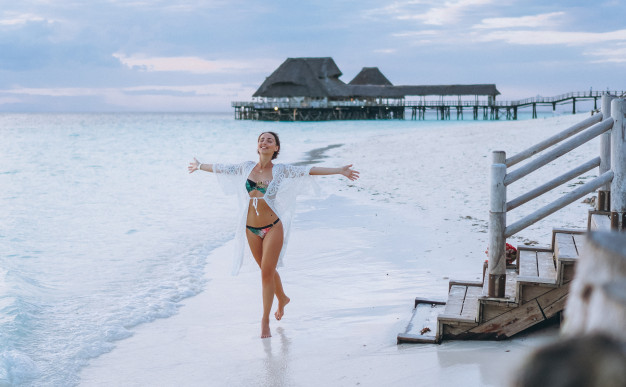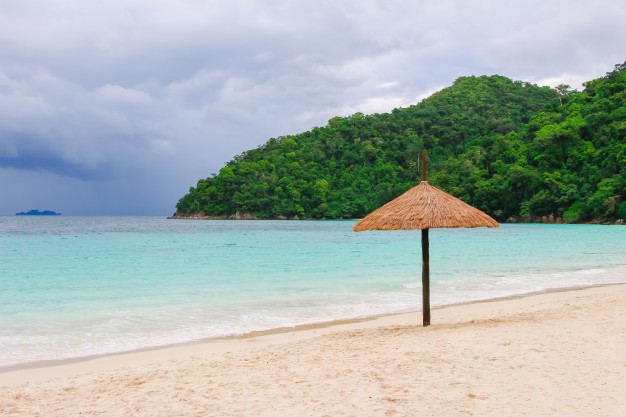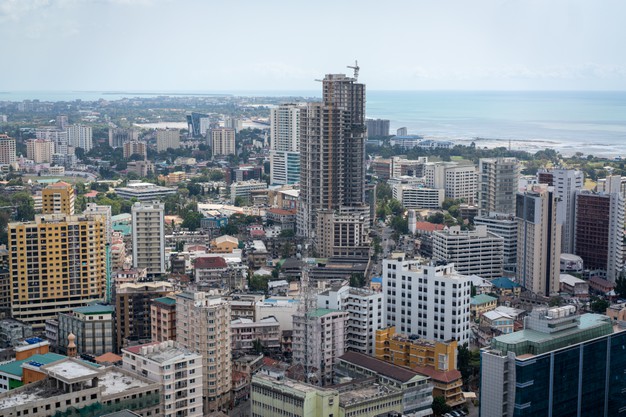
Tanzania has been steadily growing as a popular travel destination. It is also one of the few countries with open borders in the post-COVID-19 world. If you are planning to visit this beautiful East African country, one thing to keep in mind is your attire.
While the nation is warm and welcoming, some types of popular clothing are not appropriate or should not be worn at a specific place in Tanzania. You can get a lot of valuable information about Tanzania on this site, and learn more about it before you decide to visit it.
Some common clothes that should be avoided include shorts, mini skirts in some areas, and any camouflage attire anywhere in the country.
Shorts and Miniskirts

In contrast to neighboring Kenya, Tanzanian society is very conservative.
Tourists who wear shorts or mini skirts often feel awkward or out-of-place and may receive a few unwelcome stares. This is because of the strict religious beliefs throughout the country: the major religions are Christian and Islam, and many Tanzanians practice conservative traditions of these faiths.
Modesty is the ideal, and therefore tight or revealing clothes are considered indecent and provocative. While there is no exact prohibition on such attire throughout Tanzania, visitors feel more comfortable and welcomed when they dress in a more conservative fashion.
Tanzanians are very polite and friendly people, and most of them would never outright comment about one’s clothing, however, visitors who dress in long skirts or loose-fitting pants will find a more genuine friendliness and warmth from locals.
Those interested in visiting religious or cultural sites should definitely wear long pants and skirts that reach below the knee. The leadership of such institutions, or, for example, elders of a Maasai community, may not permit a visitor in shorts or a short skirt.
Zanzibar

The popular beach destination of Zanzibar is majority Muslim, and the culture is more conservative than in mainland Tanzania. Recently, the community passed a ban on wearing skimpy clothing, except within hotels and beaches.
While Zanzibar is an island paradise, it is not a ‘beach town’ where one can walk in a bikini or swim trunks down the street. A long cover-up, flowing dress, or light shirt must be worn when walking around town.
There is a fine for guides and companies if a tourist is found in violation of Zanzibar’s rule, which ranges from $700 – 2000 USD, so it is very important that this law is adhered to.
Additionally, the local tourism ministry advises the visitors not to display too much affection and to avoid kissing in public.
Cities of Dar Es Salaam and Arusha

City residents generally have a more liberal outlook than the villagers and dwellers of small towns (like Moshi). A tourist wearing shorts in Dar es Salaam or Arusha will certainly attract stares, but we still recommend dressing conservatively.
Cultural and religious norms are nevertheless very strong in urban centers, and interactions with the locals may have subtle changes: market prices l suddenly become higher, or a tour guide becomes less enthusiastic.
What to wear instead: light, loose-fitting pants. The weather in Tanzania is usually warm, so jeans may feel too hot, although they are certainly appropriate modest attire.
Ladies can choose skirts or dresses that reach below the knee and are not low-cut around the bust.
Where Shorts and Miniskirts Are Acceptable

Luckily, there are some places where shorts and miniskirts are accepted. Feel free to put them on if you are going to spend your time in one of these places:
Hotel
There is no dress code in Tanzania hotels, and, practically, tourists may put on whatever they like, including shorts. Hotel staff is accustomed to the various attire from international visitors, so feel free to wear what you like while on the hotel property.
Swimming Pools and Beaches
Swimming pools and beaches are places where such dress is expected of visitors, and you may even see some locals donning shorts and two-piece swimsuits, too! Feel free to wear shorts, bikinis, and other tight clothing at a beach or pool throughout Tanzania.
On Game Drives in The National Parks
Except for your driver-guide, you will be having very few interactions with local people while on a Tanzania Safari in the national parks.
While park rangers may not be interested in your clothes, we still advise wearing pants while on safari – but for another reason: flies. Tsetse flies, found in Serengeti and Tarangire National Parks, love biting the legs! Keep your legs safe with some light pants, and, perhaps, some insect repellant.
Wear Shorts or Miniskirts Are Particularly Unacceptable

Revealing dress should be especially avoided if you plan to visit one of the following:
Churches and Mosques
As emphasized above, religion is very important to the people of Tanzania. Revealing clothing is not just frowned upon at the places of worship, but will be viewed as an outright insult to the local beliefs and values.
Local Markets
Most of the vendors and buyers there are people from neighboring villages, who are very conservative, and whose convictions about the appropriate way of dressing are different from those who work with international visitors.
Visiting a local market in ‘revealing attire’ may result in an unwanted lecture about respect and culture! Easily avoid this unwelcome conversation by dressing in long clothing.
Public transport is used by the locals and seating can be very crowded. If you chance wearing shorts or a miniskirt on local transport, you may accidentally offend some of the senior passengers, or receive unwanted attention from youth.
Government Offices
Needless to say, it is a very bad idea to visit government buildings without a more formal dress. Tanzanians typically wear their best when visiting government offices, so if for any reason, you have a need to attend an official meeting, we strongly suggest choosing clothes that cover thighs and knees. Men should also consider putting on a button-down shirt instead of a T-shirt.
Camouflage

The rule about camouflage clothing in Tanzania is straightforward: camouflage clothing is reserved exclusively for the Tanzania People’s Defense Force, the national military.
Only official military personnel are permitted to dress in camouflage uniforms. Anyone else found dressed in camouflage will be fined by the police, and camouflage will be confiscated.
Conclusion
When packing your suitcase for the Tanzania adventure, consider where you will be spending time, and if you want to visit religious or cultural places. If you plan to visit the beach or a swimming pool, pack a few items to help you enjoy the water.
We also recommend including 2 or more long pants or skirts, to respect Tanzanian culture and help you feel more at ease when browsing a local market, visiting a Maasai community, or wandering the ancient streets of Stonetown, Zanzibar.
If you are unsure about whether a certain piece of clothing will be appropriate, consult your travel company, whose specialists will provide you with the right advice.






